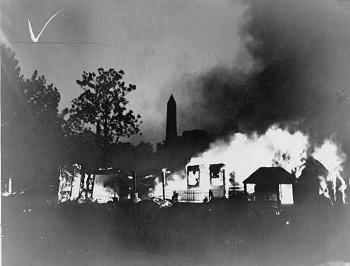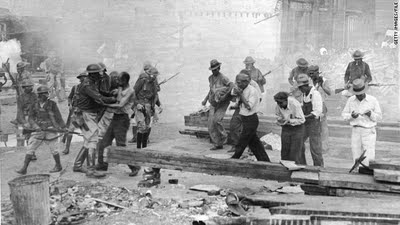A Brief History of Veterans Affairs: 1781 to the Bonus Army

When discussing how our nation treats its veterans, the logical starting point is 1781 with the disbanding of the Continental Army after the Revolutionary War. Elaborate promises were made to both officers and enlisted men during the war, all of which were totally ignored by the government now under the Articles of Confederation.
The first veterans law passed in the United States was an Act by the Continental Congress in 1776 promising a half-pay pension for life for all wounded officers, soldiers, and sailors unable to maintain a livelihood. Considering that amputation was the standard medical treatment for wounds to the limbs, this would have included most of the wounded veterans of the Revolutionary War.
In 1778, the Continental Congress guaranteed that officers serving until the end of the war would receive half-pay for 7 years. Enlisted men were promised a bonus of $80 for serving the duration of the war.Neither of these promises were ever fulfilled. The Congress under the Articles of Confederation lacked the power to raise taxes from the states, which made funding much of anything impossible at a federal level.
Conditions were so bad that the government faced a crisis in 1783 with the Newburgh Conspiracy. Those who were veterans were not receiving the promised pensions and those still in the dwindling Continental Army had salaries in arrears.
It wouldn't be until the Acts of 1818 and 1832 that full remediation of pensions would take place. Fraudulent claims abused the provisions of these Acts as enough time had elapsed to make it difficult to prove (or disprove) that a claimant had qualifying service.
The Civil War wasn't much better. Confederate soldiers had to rely on state-level pensions, while Union soldiers didn't get much better treatment from the federal government. It wasn't until the 20th Century that many of the pensions were paid to Civil War veterans and their widows.
My great-great grandmother received her husband's Civil War pension in 1920(pictured), 55 years after the close of the war!
The modern Veteran's Administration system was started in the 1930s, due in large part to the problems associated with the eventual evolution of the Bonus Army protests in 1932.
In 1924, an Act was passed promising WWI veterans a bonus of $500 -- but payable in 1945. By June 1932, with the Great Depression in its third year, over 10,000 veterans and their families marched on Washington, D.C. demanding their full pensions immediately. They set up a camp within view of the Washington Monument and squatted for over a month.
In July 1932, President Hoover ordered Major General Douglas MacArthur to disband the Bonus Army, who sent then Major George Patton with his cavalry and tanks to clear out the camps.
In perhaps the only instance of tanks being used against American civilians, the Bonus Army's encampment was destroyed with over 100 fatalities -- including women and children.
This had an enormous impact on American politics. While not as ingrained into the current American psyche, this was the Kent State of the 1930s -- but with a much higher body count. Republicans were portrayed as heartless and unsympathetic to the average American's problems -- and it would be over 30 years until a Republican would ever be elected to the presidency. The House was mostly under Democratic control until the 1990s.
President Roosevelt would shape the VA into its modern form, with largely positive benefits for WWII veterans. This would eventually change into its modern problematic structure during Korea and Vietnam.
Editor's note. This article is the first of a two-part series on the history of Veterans Affairs and veteran programs in the United States. The next installment will cover WWII to the present.






